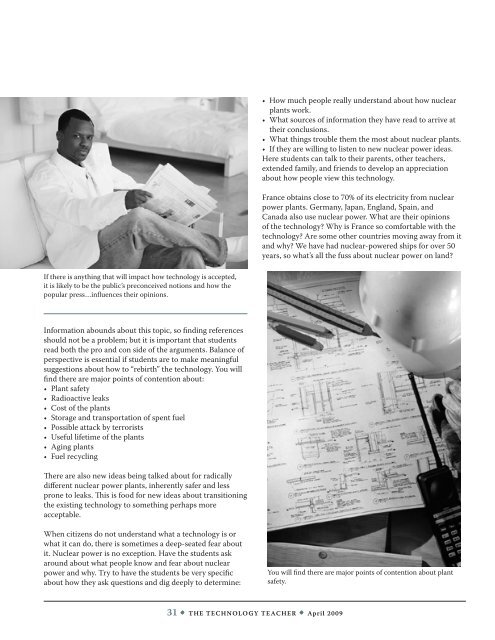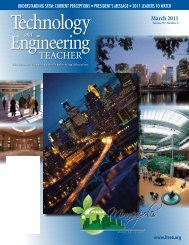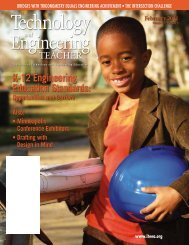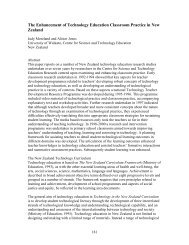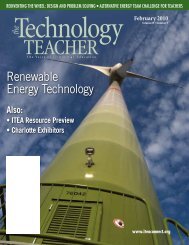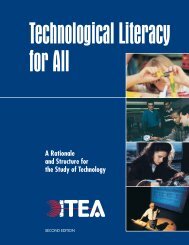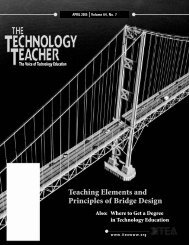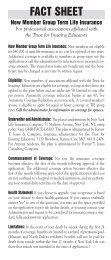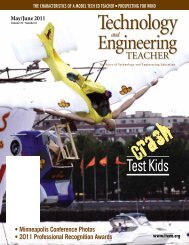Design Your Own Underwater ROV - International Technology and ...
Design Your Own Underwater ROV - International Technology and ...
Design Your Own Underwater ROV - International Technology and ...
You also want an ePaper? Increase the reach of your titles
YUMPU automatically turns print PDFs into web optimized ePapers that Google loves.
• How much people really underst<strong>and</strong> about how nuclear<br />
plants work.<br />
• What sources of information they have read to arrive at<br />
their conclusions.<br />
• What things trouble them the most about nuclear plants.<br />
• If they are willing to listen to new nuclear power ideas.<br />
Here students can talk to their parents, other teachers,<br />
extended family, <strong>and</strong> friends to develop an appreciation<br />
about how people view this technology.<br />
France obtains close to 70% of its electricity from nuclear<br />
power plants. Germany, Japan, Engl<strong>and</strong>, Spain, <strong>and</strong><br />
Canada also use nuclear power. What are their opinions<br />
of the technology? Why is France so comfortable with the<br />
technology? Are some other countries moving away from it<br />
<strong>and</strong> why? We have had nuclear-powered ships for over 50<br />
years, so what’s all the fuss about nuclear power on l<strong>and</strong>?<br />
If there is anything that will impact how technology is accepted,<br />
it is likely to be the public’s preconceived notions <strong>and</strong> how the<br />
popular press…influences their opinions.<br />
Information abounds about this topic, so finding references<br />
should not be a problem; but it is important that students<br />
read both the pro <strong>and</strong> con side of the arguments. Balance of<br />
perspective is essential if students are to make meaningful<br />
suggestions about how to “rebirth” the technology. You will<br />
find there are major points of contention about:<br />
• Plant safety<br />
• Radioactive leaks<br />
• Cost of the plants<br />
• Storage <strong>and</strong> transportation of spent fuel<br />
• Possible attack by terrorists<br />
• Useful lifetime of the plants<br />
• Aging plants<br />
• Fuel recycling<br />
There are also new ideas being talked about for radically<br />
different nuclear power plants, inherently safer <strong>and</strong> less<br />
prone to leaks. This is food for new ideas about transitioning<br />
the existing technology to something perhaps more<br />
acceptable.<br />
When citizens do not underst<strong>and</strong> what a technology is or<br />
what it can do, there is sometimes a deep-seated fear about<br />
it. Nuclear power is no exception. Have the students ask<br />
around about what people know <strong>and</strong> fear about nuclear<br />
power <strong>and</strong> why. Try to have the students be very specific<br />
about how they ask questions <strong>and</strong> dig deeply to determine:<br />
You will find there are major points of contention about plant<br />
safety.<br />
31 • The <strong>Technology</strong> Teacher • April 2009


